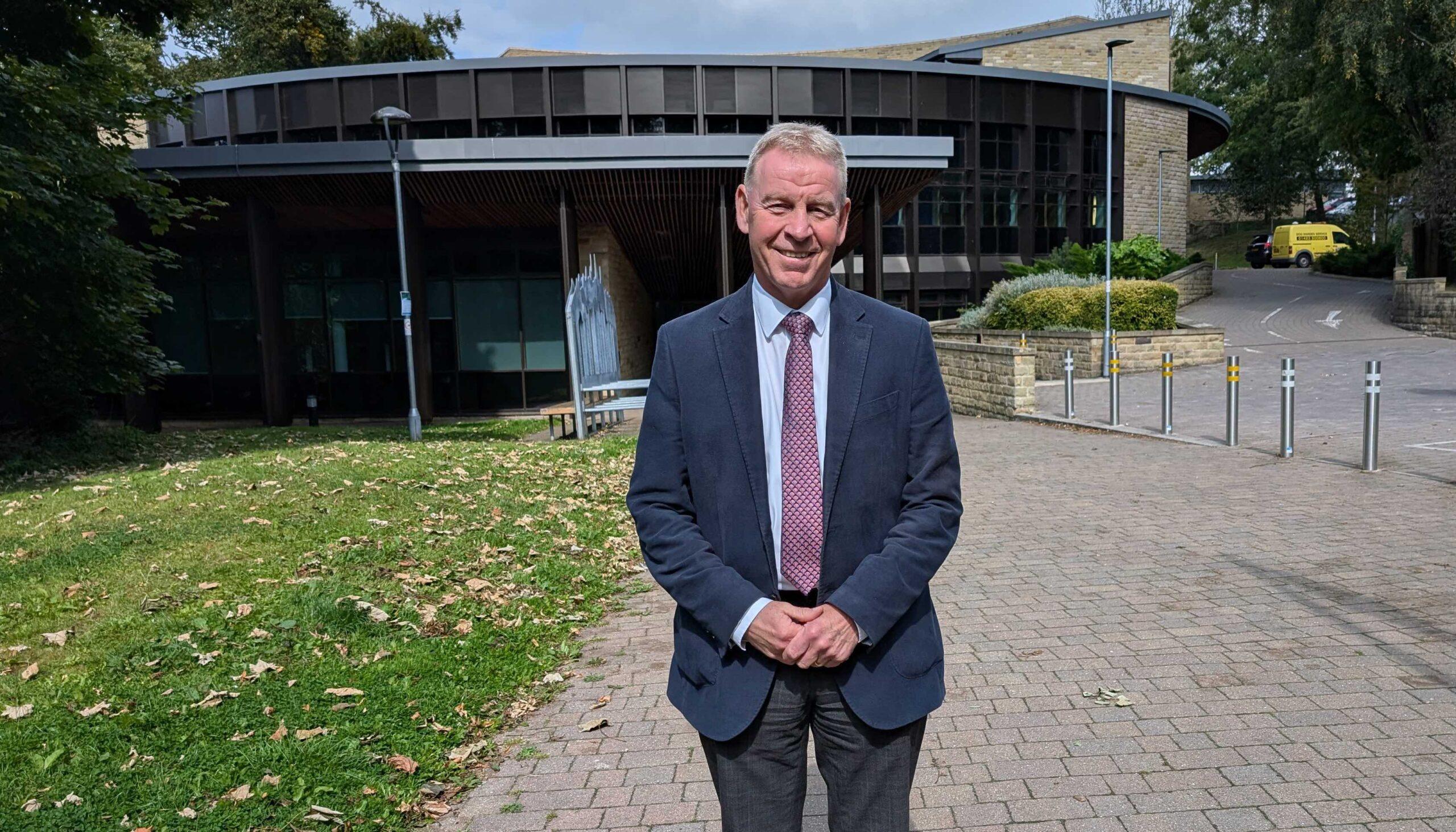Subscribe to trusted local news
If you are accessing this story via Facebook but you are a subscriber then you will be unable to access the story. Facebook wants you to stay and read in the app and your login details are not shared with Facebook. If you experience problems with accessing the news but have subscribed, please contact subscriptions@thestrayferret.co.uk. In a time of both misinformation and too much information, quality journalism is more crucial than ever. By subscribing, you can help us get the story right.
- Subscription costs less than £1 a week with an annual plan.
Already a subscriber? Log in here.
01
Sept 2024
North Yorkshire Council CEO: SEND system is ‘broken’ and needs reform

This is the first in a two-part interview with North Yorkshire Council CEO, Richard Flinton. In this article, Mr Flinton talks SEND demand, adult social care and difficult financial decisions.
The chief executive of North Yorkshire Council has described the special educational needs system as “broken” as the authority struggles with a significant increase in demand.
Richard Flinton told the Stray Ferret that the government should carry out a “root and branch review” into the matter as it was putting pressure on council services.
He also admitted that outcomes for families under the current SEND system were “not good enough”.
In a wide-ranging interview, Mr Flinton said that the council may have to make difficult decisions to make £45 million in savings over the next two years and called for government to come up with a strategy to tackle demand for adult social care.
‘The system is broken’
Mr Flinton has a lot on his plate as chief executive of the council covering the largest rural county in England.
But, if you ask him what are the five most challenging areas for the authority, SEND and adult social care are in his top two.
The Stray Ferret has reported extensively on the issue of SEND in the Harrogate district, including two exclusive features on the topic with families contending with the system in the last couple of weeks.
Last November, North Yorkshire Council revealed that it already has a £13m annual deficit for SEND places, and that it faces an annual “black hole” of up to £100 million within four years due to spiralling demand for SEND support services.
Demand has rocketed for Education, Health and Care Plans (EHCPs) – legal documents that set out the tailored support a child needs – and there is a growing backlog of cases waiting to be assessed.
In an interview with the Stray Ferret at Harrogate’s Civic Centre on a warm Thursday lunchtime, Mr Flinton was candid about the dire situation facing the council when it came to SEND.
He said:
I don’t think it’s too strong to say that the whole system around special educational needs is broken. I don’t think the outcomes for families and young people are good enough.
The stress that the system puts on councils and therefore puts threats on other services, that isn’t good enough either.
There needs to be a complete government root and branch review of special educational needs.
The council has put forward plans to increase the number of places in the Harrogate district in an effort to stem the tide of rising demand.
A consultation is set to go out in the coming months for an additional 45 places at Springwater School in Starbeck.
There are also plans for an 80-place school specialising in autism at the now-closed Woodfield Community Primary School in Bilton at a cost of £3.5 million. However, the school will be for 11-19 year olds and is not due to open until 2025.

The former Woodfield Primary School, which is earmarked to be turned into a specialist autism school.
While Mr Flinton says the issue is systemic, a large part of it is also financial.
Mr Flinton says the council is currently in the lowest bracket for government support, despite the spiralling demand.
Money comes in the Department for Education’s High Needs Block fund, but the council also puts its own capital resources towards projects aimed at increasing SEND provision.
However, Mr Flinton said the funding available to the council is not enough to tackle the problem. He points to a 200% increase in demand for EHCPs to the council in the last 10 years.
He said:
As opposed to other local authorities, we get very poorly funded in this. I think we’re at the bottom of the capital funding that comes into different councils so nobody gets less than us.
The funding is based on historical levels, so it has never kept up to pace with that increase.
Adult social care reform
Alongside SEND, Mr Flinton says adult care is also at the top of the list of challenges for the authority.
He describes Harrogate, Ripon and Boroughbridge as “characteristic of the issue” due to the elderly demographic in the district.
The county has an older population than the national average and weekly care costs are estimated to be above £1,000.

Mr Flinton speaking at a previous chamber briefing two years ago.
Part of the problem for the council is the increased demand from people requesting social care support.
The whole issue puts further strain on council services, but Mr Flinton believes part of the solution lies with central government.
Many people get to the point where they need some support. Many people don’t have families to support them or the level of support is beyond that which families can cope with.
As more people live into very old age, we’re getting more people in those circumstances. That’s why it’s an ongoing issue that this government has got to face.
Over too many years, we’ve had governments who have not put in place a full strategy to deal with our adult social care situation. We can't carry on like that, we have got to grasp the nettle.
‘Difficult decisions’
The significant demand in SEND and adult social care puts pressure on already stretched council finances.
Despite the efficiencies promised by the launch of North Yorkshire Council in April 2023, the authority faces making cuts of £45 million over the next two years.
Mr Flinton tells the Stray Ferret that he has already ordered his senior officers to look for savings proposals in the upcoming budget for 2024/25.
There still might be some difficult decisions in that budget that we have to consult with the public on.
The council has already approved controversial plans to limit free transport for pupils to their nearest school.
The annual cost of providing school transport has more than doubled since 2018/19 to £51 million and is now the Conservative-run council's third-largest source of expenditure behind adult social care and waste management.
The changes will be phased in and are expected to contribute £4.2 million to the council’s planned savings in the coming years.
Mr Flinton said part of the problem with the service was that the county is rural, which increased the cost on the council providing the transport.
He said:
There’s often a premium on running services in a rural area and that’s one of those services where North Yorkshire will spend more in that area than any other council. We’d probably spend twice, maybe three times more than our neighbouring councils.
4